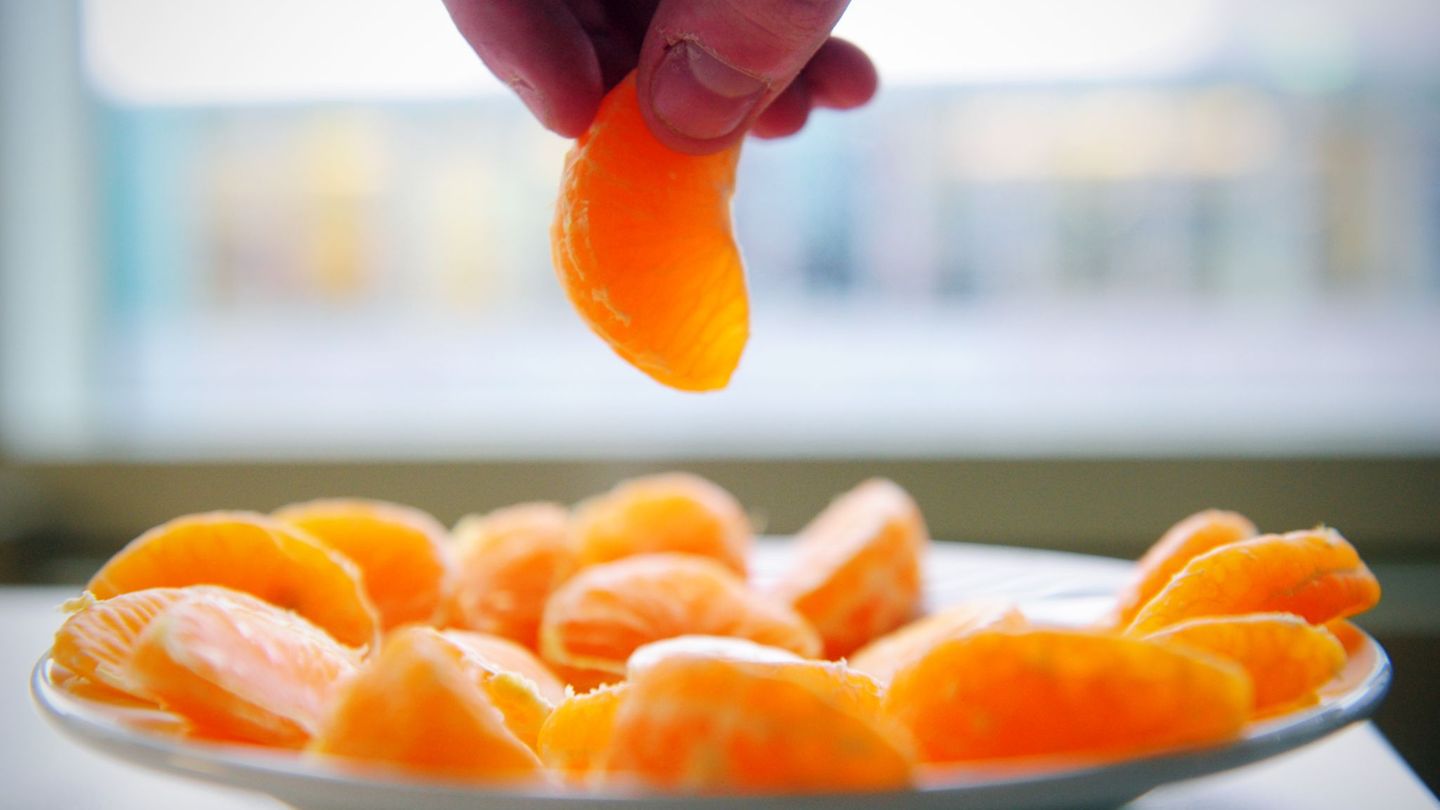Damaged crops
Storms in Spain: Mandarins can become more expensive
Copy the current link
Due to the heavy rains in Spain, many fruit plantations are under water. Experts believe it is possible that customers in Germany will also feel this.
They are particularly popular at Christmas time: tangerines. However, customers in Germany may have to dig deeper into their pockets for the citrus fruit. It is to be expected that prices will rise in the next few weeks and supply will temporarily become tighter, said market analyst Claudio Gläßer from Agrarmarkt Informations-Gesellschaft (AMI) in Bonn. He did not want to provide any information about the amount of the possible price increase.
The reason for this is the violent storms in the Spanish region of Valencia, which plays a central role in fruit cultivation. According to Gläßer, many fruits were thrown off the trees or damaged by striking branches due to the strong wind. Logistics have been significantly affected, infrastructure and roads have been affected, said Gläßer. “Many plantations are under water, which is why Eastern farmers cannot access the cultivated areas.” Oranges and lemons are also affected.
According to initial preliminary figures from the Valencian Agricultural Association, the cultivation of citrus fruits alone caused damage amounting to 192 million euros, as the Spanish business portal Levante-EMV writes. The harvest was in full swing in many fields, especially the early mandarin varieties, when the storms hit, it was said.
Prices currently lower than last year
According to AMI expert Gläßer, it is not yet possible to quantify exactly how large the harvest losses are for individual types of fruit and what impact this has. The consequences of the storms have not yet been felt in Germany; prices are currently 6 percent below the previous year’s level. “There doesn’t necessarily have to be a sharp increase in prices,” said Gläßer. The harvest of most mandarin orange varieties in Spain began between late September and early November.
In industry circles, the situation is not perceived as dramatic. It was said that there was good experience with crop failures in the fruit and vegetable trade. For example, it is possible to switch to other supplying countries and growing regions. Major supply bottlenecks are not expected, but rising prices are expected. A below-average harvest had already been forecast before the severe storms.
According to AMI, 84 percent of Spanish mandarin and clementine exports come from the Valencia region, and 74 percent of oranges. Spain is by far the most important supplier of citrus fruits for Germany. In 2022, 86 percent of tangerines and clementines came from there, 79 percent of oranges and 72 percent of lemons. Citrus fruits are also imported from other countries such as South Africa, Italy, Türkiye, Morocco and Greece.
dpa
Source: Stern




